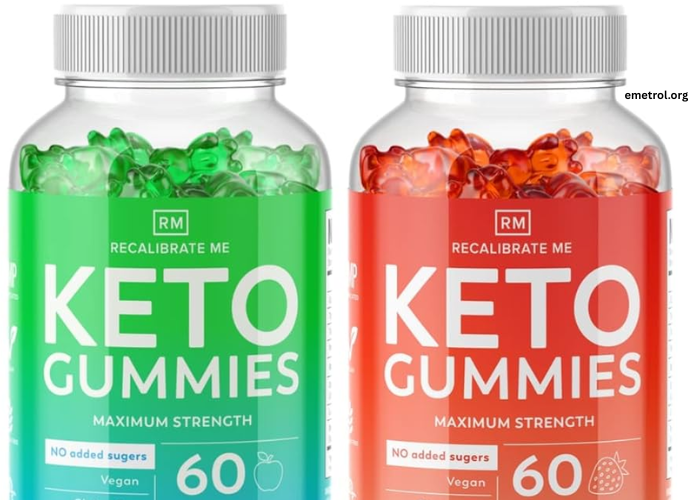Asparagus Nutrition: Find Out the Health Benefits, Nutrients & Side Effects
Asparagus is a vivid green veggie famous for its subtle flavor and powerful health benefits. It is commonly consumed in the context of a healthy diet as it has low calories and high content of vitamins, minerals, and antioxidants. Roasted, grilled, steamed or added to salad, asparagus is an unsung hero for a healthful diet.
This is belongs to the lily family, also typically roasted in spring. It has high, spear-like stalks and comes in green and white, even purple. But, color aside, all asparagus varieties deliver a load of nutrients that are good for the human body in many ways.
Asparagus is a good source of vitamin K, vitamin A, vitamin C, folate, and dietary fibre. These nutrients also play a role in blood clotting, immune health, digestion, and even pregnancy health. Because it is also bursting with antioxidants, asparagus plays a role in combatting inflammation and protecting cells from harm.
Key Points:
Asparagus is loaded with vitamins A, C, E, and K, and folate.
It is low calorie but rich in fibre so it just digestion-friendly.
Asparagus is loaded with anti-oxidants to ward off disease.
Why Asparagus Is Good For You?
One of the most nutritious vegetables you can eat is asparagus. One of its biggest advantages is that it is full of folate, a B-vitamin that is crucial for pregnant women and helps produce new healthy cells. A one-cup serving of cooked asparagus offers you nearly 65% of your daily folate requirement.
Asparagus also has significant health promoting anti-inflammatory and antioxidants. It has compounds including glutathione, quercetin and kaempferol which help decrease oxidative stress and strengthen the immune system. These antioxidants can be especially helpful in reducing the risk of heart disease, diabetes and some types of cancer.
Vitamin K in asparagus helps the blood to clot and imparts health to the bones also. People with low vitamin K levels may experience bone problems and have more trouble healing. asparagus Random fact most of you probably don’t know is that in addition to being a fiber powerhouse, asparagus also contains inulin, a type of fiber that the good bacteria in your gut (aka your microbiota) eats to improve your digestion and immune function.
What’s more, their high water content & low calories make asparagus an ideal choice for anyone looking to lose weight or stay in shape! You will be full but not lethargic, and the fiber content will help you stay that way a while longer.
Reminder: Eating asparagus frequently can aid in digestion, particularly alongside other fiber-rich foods.
What Nutrients Does Asparagus Contain?
Asparagus is also a nutrient cornucopia. One cooked cup (180g) of asparagus provides:
Calories: 40
Protein: 4.3 grams
Carbohydrates: 7.4 grams
Fiber: 3.6 grams
Fat: 0.4 grams
Vitamin K: 57% of the DV
Folate: 67% of the DV
Vitamin A: 18% of the DV
Vitamin C: 12% of the DV
Vitamin E: 7% of the DV
Potassium: 9% of the DV
Phosphorus, Iron and Zinc — smaller quantities of these too
Asparagus is also high in B vitamins such as thiamine and riboflavin, essential for turning food into energy. asparagus (Potassium supports healthy blood pressure levels, Iron to support healthy red blood cells)350/4.0QRSTUVWXYZ1/4Page 6IngredientsSweet Potatoes, Corn, Red Bell Pepper, Onions, Expeller Pressed High Oleic Safflower Oil, Potato Starch, Tomatoes, Cane Sugar, Sea Salt, Yeast, Mustard (Vinegar, Water, Mustard Seeds, Salt, Turmeric, Spices), Black Pepper, Herbs, Spices.
Another star nutrient is asparagine, an amino acid from which asparagus gets its name. It is important for the development and function of the brain and for the body’s disposal of excess nitrogen.
Note: Cooking asparagus lightly (as in steaming or roasting for a short time) conserves its nutritional content.
What is it about Asparagus that aids digestion?
One of the cool things about asparagus is the fact that it aids in digestion. This vegetable is packed with dietary fibre, primarily insoluble, which contributes bulk to your stool and facilitates the movement of your bowels. That can head off constipation and keep your bowels healthy.
Asparagus also has another kind of fiber unique to it, inulin. Inulin is a prebiotic, so named because it feeds the healthy bacteria in your gut. These bacteria are crucial for nutrient absorption, immune system function and even mental health. When your intestinal flora are happy, the rest of you is, too.
Asparagus is also a mild diuretic, which can help you rid your body of excess fluid and decrease bloating. This makes it a popular choice for those with water retention or bloating problems.
In combination with other high-fiber foods such as beans, oats and leafy greens, asparagus contributes to structuring a complete gut-healthy diet. It’s especially helpful for individuals suffering from IBS (Irritable Bowel Syndrome) or slow digestion.
Is Asparagus Good for Weight Loss?
Yes, asparagus is an excellent food to eat if you are trying to lose weight or if you are trying to stay trim and fit. It is extremely low in calories — only about 40 calories per cup — and contains no fat. It is low in calorie volume, but high in fiber density, so you feel full from the fiber and liquid content.
Fiber helps you feel fuller after you eat, which can lessen the chance that you’ll overdo it with snacks or portion sizes. It also slows down digestion so you stay full longer. This is crucial when attempting to cut calories in general.
Asparagus is also loaded with key nutrients, so you get a lot of bang for your health buck without consuming too many calories. It’s simple to cook up for meals, whether grilled, steamed or sautéed, and it can even be baked as fries, so it’s a versatile low-calorie recipe ingredient.
Including asparagus in salads, soups, stir-fry dishes or to serve as a side to lean proteins such as chicken and fish will add both flavour and nutritional benefit.
Asparagus Pregnancy And Is It Safe For You?
Yes, asparagus is particularly great for pregnant women, as it’s one of the richest sources of folate, a nutrient that’s crucial for healthy development of your baby’s brain and spine. It prevents neural tube defects, which a baby can develop in early pregnancy.
In addition to the above, asparagus also contains iron for red blood cell production. This is significant in a woman’s blood volume during pregnancy, which increases to support the baby’s growth. Asparagus also contains vitamin K, important for appropriate blood clotting which is an advantage during childbirth.
Fresh fruits and green vegetables are recommended for pregnant women and asparagus is an ideal vegetable for your pregnancy diet. It aids in digestion, eliminates bloat, and delivers energy without having to worry about excess calories. Just be sure to wash it and cook it well to prevent food-borne illness during pregnancy.
Conclusion
Asparagus isn’t just a delicious vegetable—it packs some serious nutrients that can help you stay healthy. With its anti-inflammatory properties to support digestion, it’s a good immunity booster, and whether you’re pregnant or not, it supports pregnancy, as well. It’s low in calories, high in fiber, and packed with essential vitamins and antioxidants. Whether you are looking to improve gut health, shed pounds, or simply get more nutrients into your meals, asparagus is a smart choice for anyone’s diet.
Reminder: Be sure to eat asparagus in the context of a well-rounded diet, with plenty of other veggies, proteins, and whole grains.
FAQ’s
Can I eat asparagus every day?
Yes, it is safe for most people to eat asparagus everyday. It’s high in fiber and nutrients, but can cause extra gas or bloating if you overdo it.
Does asparagus make your urine smelly?
Yes, asparagus does have sulfur compounds that can stink up your pee. It’s perfectly okay and harmless.
Is asparagus less nutritious when cooked?
Cooking might destroy some vitamins such as vitamin C, but steaming or roasting can preserve most of its nutrients.
Is asparagus healthy for you if you have diabetes?
And yes, asparagus has a low glycemic index and can help regulate blood sugar, so it’s safe for diabetics.
How is the best way to store asparagus?
Keep fresh asparagus in the refrigerator by standing it in a jar with some water, lightly covered with a plastic bag.



